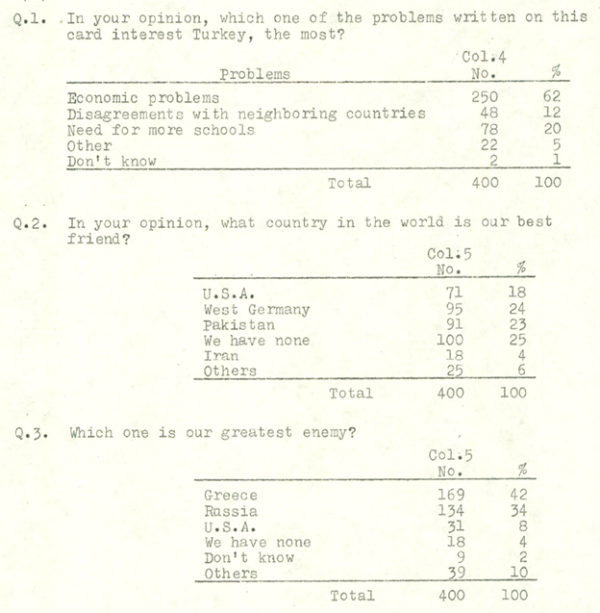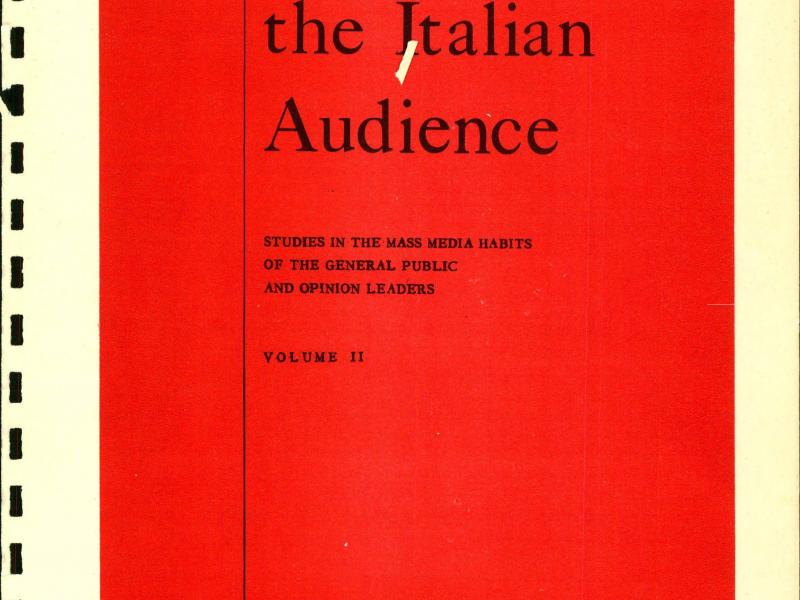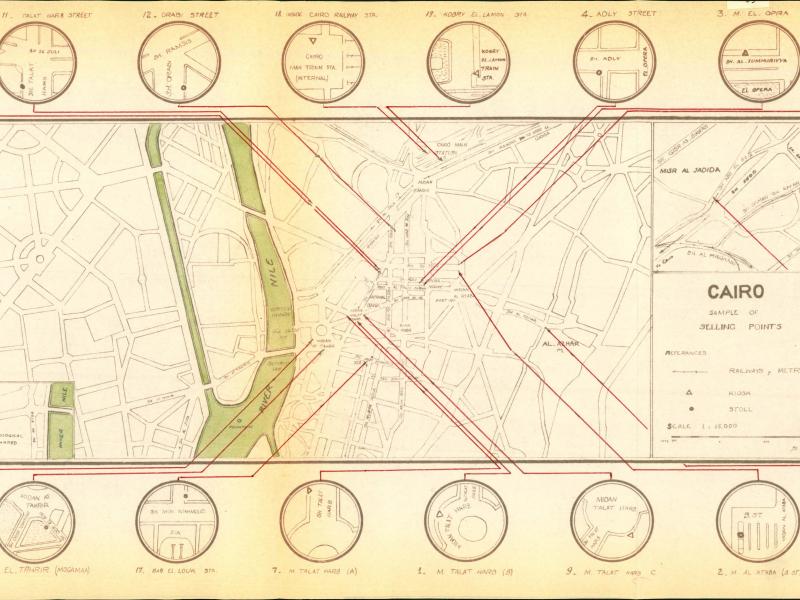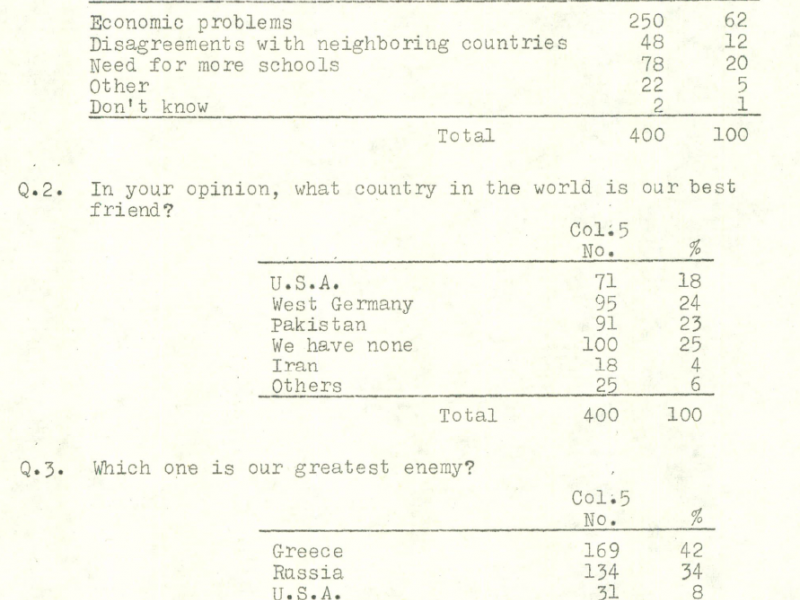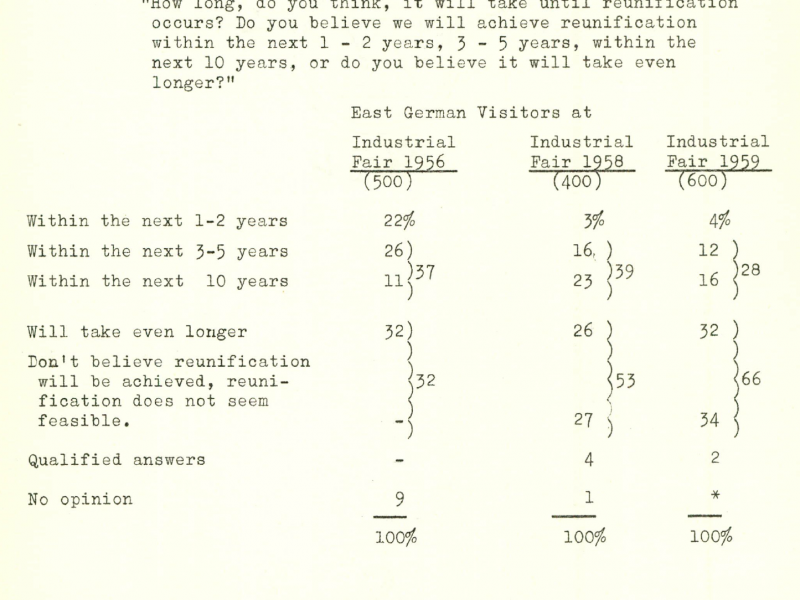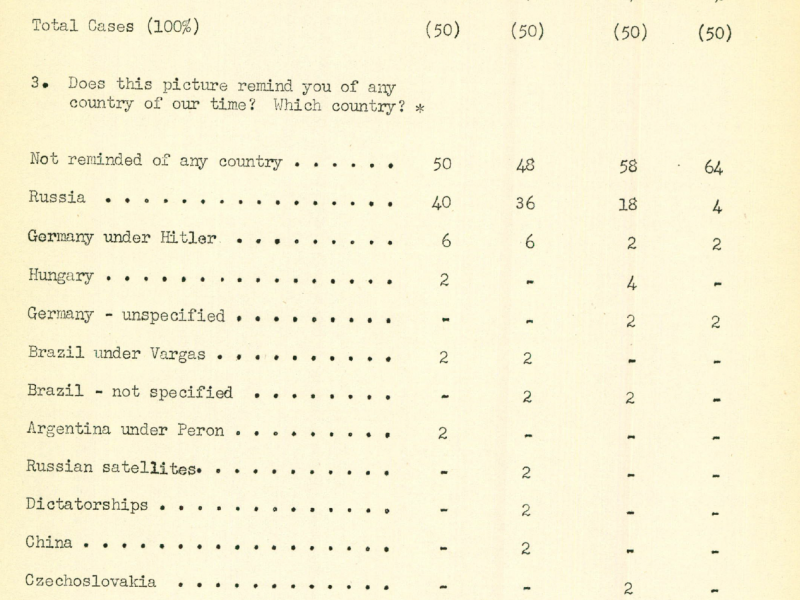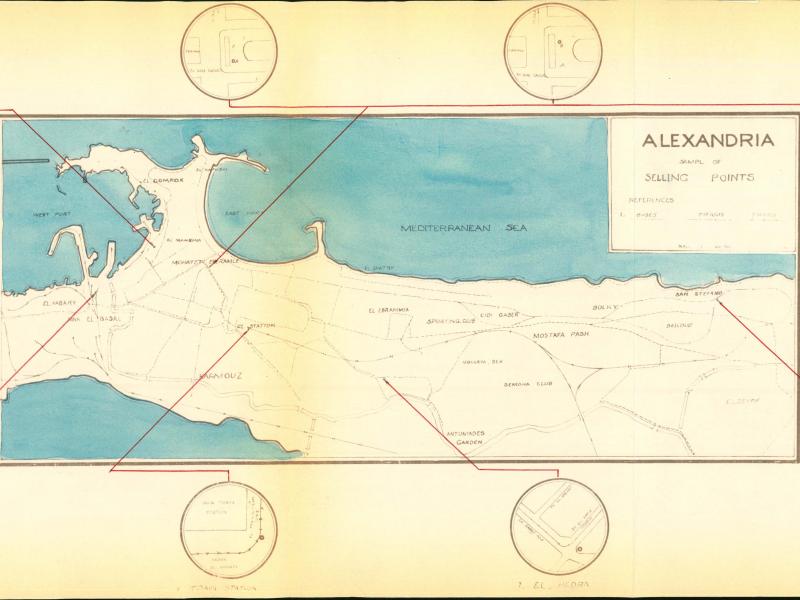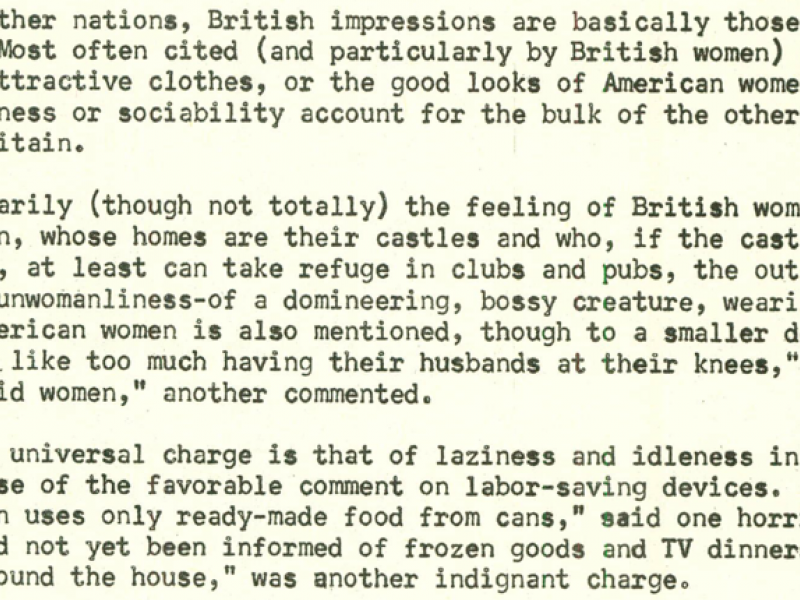These reports, which were previously unavailable digitally, come from the United States Information Agency. Also known as the U.S. Information Service (USIS), the USIA was a foreign affairs agency in the executive branch of the U.S. government with a charge to explain and support U.S. foreign policy, interests, and values abroad. The agency was established in 1953 by President Eisenhower. USIA was responsible for several important U.S. projects during the Cold War, including Voice of America radio, the Fulbright Scholarship program, speaker series, the publication of magazines and newspapers, the filming of documentaries, and the design and operation of U.S. pavilions at world expositions.
The survey research function of USIA supported all these efforts while informing diplomatic services of public opinion of the U.S. in countries around the world. Roper’s collection of over 1245 USIA datasets from the 1950s to the early 2000s includes data from more than 75 countries. These surveys measured responses to the specific projects of the USIA, including radio, world’s fair exhibits, and publications. But the surveys also investigated attitudes towards democracy, free speech, Communism, the Soviet Union, the SALT treaties, race relations in the U.S., and international trade and economic issues.
In addition, research reports from Radio Free Europe are available as part of this collection. Download the list of available report below, next to the collection finding guide.
